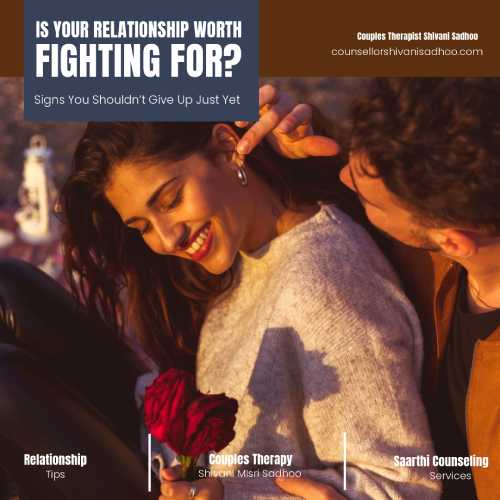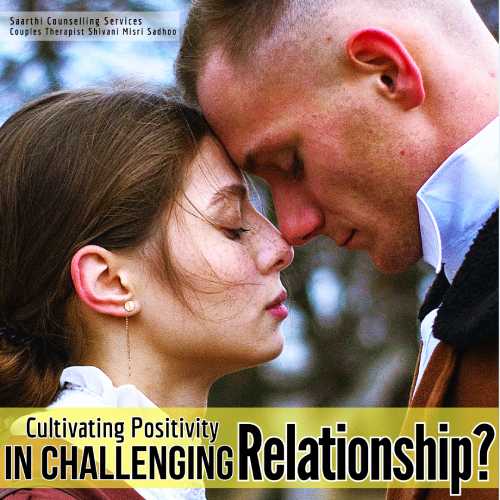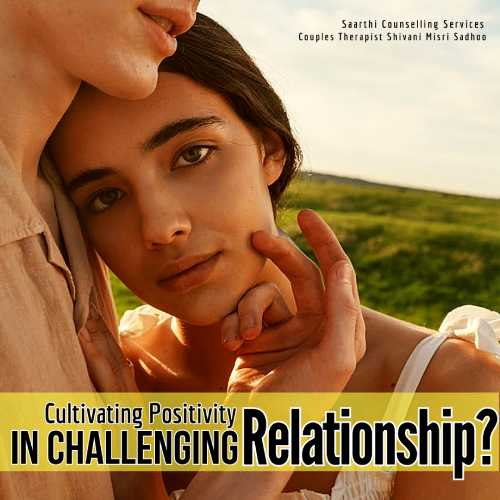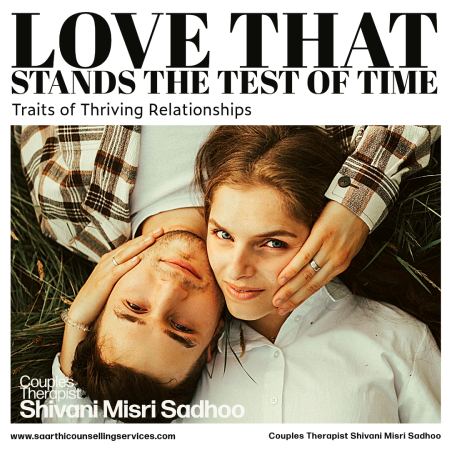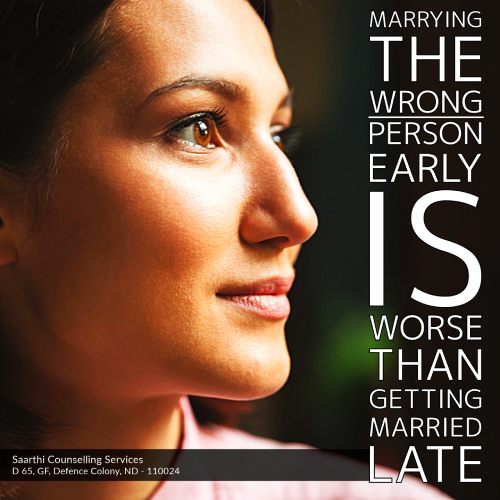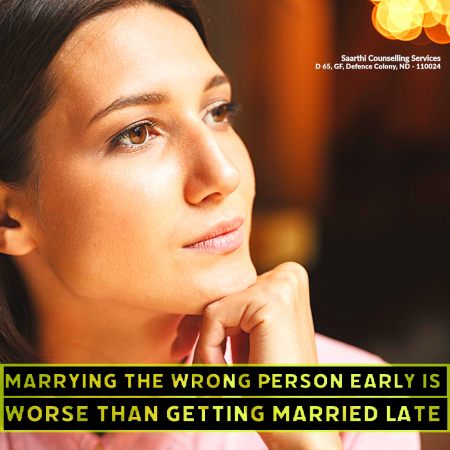Relationships are like roller coasters, full of twists, turns, and unexpected drops. They can whisk us away on thrilling highs one moment and leave us feeling disoriented in the depths of a low the next. But amidst this whirlwind of emotions and experiences, there often comes a point where we question whether it’s worth continuing the ride or if it’s time to disembark. If you find yourself at this crossroads, here are some signs suggested by India’s leading marriage counselor and relationship expert Shivani Misri Sadhoo that indicate your relationship may still be worth fighting for in this blog.
What signs do you need to check for so that you don’t give up?
Still Happy With Each Other
When two individuals cherish the simplicity of being together, it signifies a depth of connection that transcends superficiality. Engaging in hearty laughter, sharing heartfelt conversations, and relishing each other’s company amid life’s ordinary moments affirm the resilience of the bond.
Such genuine joy becomes the foundation upon which the relationship stands, offering a compelling reason to persevere through challenges. Laughter, like an adhesive, binds hearts tightly, serving as a testament to the enduring strength of the connection. Thus, finding genuine joy in one another’s presence underscores the significance of the relationship, making it a cause worth fighting for.
Unwilling to Hurt Each Other
When a relationship hits a rough patch and tensions run high, it’s common for couples to become embroiled in anger and conflict. However, when despite the anger and frustration, neither partner harbors the intention to inflict harm, it speaks volumes about the underlying love and respect in the relationship. It showcases the strength of their bond and the potential for growth and reconciliation. Therefore, this unwillingness to cause harm becomes a beacon of hope, signaling that the relationship is worth fighting for and nurturing.
Care and Concern still exists
Even amidst frustrations and conflicts, the fact that you still hold genuine concern for the other person’s well-being signifies a profound connection worth nurturing. This caring attitude suggests an underlying emotional investment and a desire for mutual growth and happiness.
It demonstrates that despite the challenges, there remains a foundation of empathy, understanding, and commitment. This means that the relationship is still worth fighting for.
Trying to Change for You
When your partner takes genuine steps to address concerns, it’s a positive sign worth holding onto the relationship. It’s crucial to distinguish between words and deeds. If they promise change but show no effort to improve, it’s a signal to reconsider the relationship’s viability and perhaps move on. Genuine efforts to change demonstrate commitment and reinforce the relationship’s value.
Willing to make the relationship work
If both of you are still willing to put effort into the relationship, it’s a clear sign that there’s more to be salvaged. When you and your partner are determined to work through difficulties, compromise, and improve things, it’s worth giving the relationship another chance.
Even when times are tough, and it feels like the love is fading, the fact that both of you are committed to fighting together is a priceless indication of something worth holding onto. Having a partner who refuses to give up and is dedicated to doing their best is truly wonderful. However, it’s essential to be honest about whether the challenges, such as significant differences in values or life visions, can be overcome.
Trust exists
Trust is the key to a strong relationship. When you trust your partner and they trust you back, it shows that you both have each other’s backs. Even when things get tough, knowing you can count on each other is a reason to keep working on the relationship.
If you still believe in your partner and feel confident they have your best interests at heart, it means there’s hope for your relationship. Trust is like a bridge that connects your hearts, and if it’s still there, it means your relationship is built on a strong foundation.
Once you have assessed the signs – shared happiness, a commitment to avoid harm, lingering care, genuine efforts for change, a joint willingness to make it work, and the foundation of trust – the decision to fight for a relationship becomes a meaningful pursuit, fortified by the enduring strength of genuine connection.
